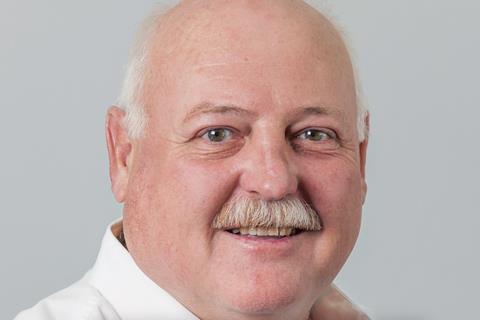The long-serving executive director of Hortgro has taken over as chairperson at Fruit South Africa
The first concept of Fruit South Africa (FSA) as an initiative to promote the country’s fresh fruit in the deregulated era was launched at Fruit Logistica Asia in Hong Kong some 24 years ago.

The idea of Fruit SA was first developed in 2001 by industry legends such as Riaan van Wyk, founder of Colorsfruit, Capespan executive Bokkie Strauss, and Eastern Cape citrus farmer Valdy Jensen.
It was designed to promote South Africa’s fruit heritage internationally after regulation-era structures were dismantled.
In those early years, the industry structures that had been formed to take the country’s fresh produce industry into the future, had not been fully established.
Since then, it has evolved – and represents most South African fruit export categories, albeit with a much different focus.
“It has been a tough journey,” admitted Anton Rabe, in an interview with Fruitnet outlining the progress made during more than two decades.
FSA now mostly focuses on government liaison, global trade and market access issues, transformation and land reform/Black Economic Empowerment, and compliance requirements, he explained.
It was quite difficult to navigate through issues where the partners in the group sometimes had divergent and often opposing needs and requirements, Rabe noted.
“But we persevered and have found common ground over time on issues we agree on and can deal with more effectively as a collective.
”We also agreed to disagree on other issues where we have conflicting views and needs.”
The recipe is clearly working, however.
“Some of the members, such as Hortgro, have a clear mandate of market development and consumer awareness in many global markets.
”As FSA we try to convey the generic traits of our fruit basket of taste, environmentally and labour astute production practices and quality which serves the diverse palate of a wide range of target countries,” said Rabe.
“We have an arrangement that where two or more members wish to conduct a programme within the identify of FSA which will not harm or undermine the other members, they can do so if they are prepared to fund such programs on their own.
”Somehow, we make it work as it has been proven repeatedly that as a collective, we can achieve more,” he continued.
The environment in which the South African fruit export sector now operates in is vastly different to a year or two ago.
“The most recent issues regarding AGOA and the tariffs slapped on virtually everybody by the Trump administration is a huge challenge,” Rabe confirmed.
“As FSA we try to ride out the storm and navigate the stormy waters, the noise and smoke in close collaboration with South African agri-business organisation, Agbiz, and linking through to BUSA (Business Unity South Africa) and The National Economic Development and Labour Council (Nedlac) to ensure that relevant ministers and ministries are informed and aware of the impact on our respective industries.”
The latest 90-day reprieve (in US Tariffs) will hopefully help to bring about a new focus and a better dispensation.
“But we can expect a bumpy ride,” he warned. ”The logistical and port challenges of the last four to five years are also a huge challenge, whilst funding and support for economic development challenges in a value chain mind-set is also adding to the day-day operational issues, which are mostly dealt with at commodity level.”
Getting some stability in the global trade environment, sorting out ports, fast-tracking market access and addressing the ever-increasing compliance demands, which mostly only adds costs, are major challenges.
“Then climate change and related risks, and ensuring that the transformation space, including training and skills development, are effectively and sustainably addressed also needs our attention,” Rabe added.



